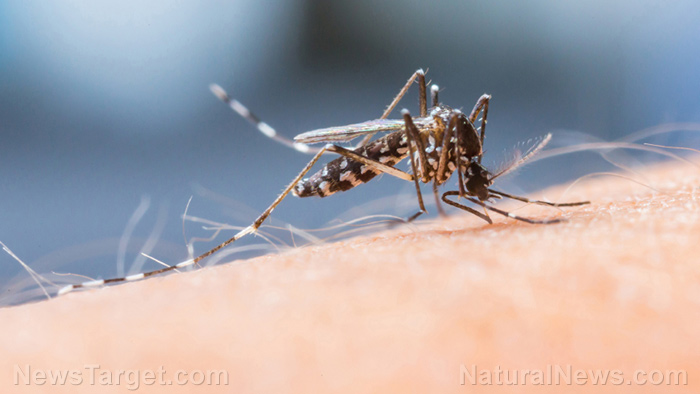Fungal meningitis outbreak causes 7th death, CDC wants everyone to get “tested”
07/14/2023 / By Ethan Huff

United States authorities are trying to discourage Americans from traveling to Mexico to get less expensive and more wide-ranging medical procedures by telling them they could end up dying from fungal meningitis.
According to the U.S. Centers for Disease Control and Prevention (CDC), seven people throughout the country have died in recent months after traveling to Mexico for “medical tourism.” While under epidural anesthesia in Matamoros, a city in Mexico’s Tamaulipas state, the infected patients allegedly contracted the infection.
Two clinics, River Side Surgical Center and Clinica K-3, are said to be ground zero for where the seven infections and deaths occurred.
“Anyone who had procedures under epidural anesthesia in these clinics from January 1 to May 13, 2023, is at risk for fungal meningitis,” the CDC announced.
The “outbreak” was first reported back in May, prompting the CDC to issue an alert. In addition to the seven deaths, the CDC is also raising fear about an additional 161 “suspected cases” of fungal meningitis that the agency says have no visible symptoms (sound familiar?).
Just 10 of these 161 suspected cases are categorized as “probable cases,” meaning the rest are probably just being made up by the CDC to add an additional scare element to its alert.
(Related: You know what increases one’s risk of contracting a bacterial or fungal infection such as this? Face masks!)
Fungal meningitis may not show symptoms, but the CDC wants people to take antifungal drugs just in case
The CDC is urging anyone who received epidural anesthesia at either the River Side Surgical Center of Clinica K-3 to immediately rush out to urgent care, a health center, or an emergency room here in the U.S. for treatment – even if no symptoms are present.
In other words, the CDC wants people who are scared and feel as though they might be infected to go out and get tested (sound familiar?), as well as take anti-fungal medications.
“Healthcare providers should immediately report suspected fungal meningitis cases, including those possibly related to this outbreak, to their state or local health department,” the agency said.
The good news is that fungal meningitis is not contagious, so the CDC cannot, even if it wanted to, turn this into another Wuhan coronavirus (Covid-19) type of situation. Even so, the agency wants people to know that even if they do not see symptoms at first, they could still emerge days or weeks down the road.
“Fungal meningitis isn’t common in the United States,” the Mayo Clinic said in a statement. “It may mimic acute bacterial meningitis. It’s often contracted by breathing in fungal spores that may be found in soil, decaying wood, and bird droppings.”
“Fungal meningitis isn’t spread from person to person. Cryptococcal meningitis is a common fungal form of the disease. “It affects people with weakened immune systems, such as from AIDS. It can cause death if not treated with an antifungal medicine. Even with treatment, fungal meningitis may come back.”
Despite all these warnings, U.S. officials cannot say for certain which kind of fungus species is responsible for the infections. The exact cause of the outbreak also remains unclear, which only adds to potential suspicions about the legitimacy of what the CDC is saying.
Even so, the CDC has issued a “Level 2” travel advisory because of the “severe illness and death” that a few infected patients suffered.
“Cancel any elective procedure that involves an epidural injection of an anesthetic in Matamoros, Mexico, until there is evidence that there is no longer a risk for infection at these clinics,” the CDC’s advisory urges.
“Cancel any elective procedure that involves an epidural injection of an anesthetic in Matamoros, Mexico, until there is evidence that there is no longer a risk for infection at these clinics.”
More related news can be found at CDC.news.
Sources for this article include:
Submit a correction >>
Tagged Under:
CDC, Dangerous, fungal meningitis, health freedom, meningitis, outbreak, risk, testing
This article may contain statements that reflect the opinion of the author
RECENT NEWS & ARTICLES
Infections.News is a fact-based public education website published by Infections News Features, LLC.
All content copyright © 2018 by Infections News Features, LLC.
Contact Us with Tips or Corrections
All trademarks, registered trademarks and servicemarks mentioned on this site are the property of their respective owners.




















